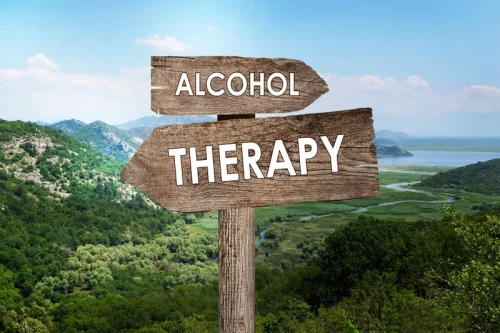
Alcohol impairs a person’s executive functioning, making it harder for them to think clearly and make rational decisions. Impulse control is affected, and individuals under the influence of alcohol may have a shorter fuse than they otherwise would. This is not to say that alcohol causes aggression, or serves to makes someone angry, in and of itself; however, it may be a contributing factor when it comes to difficulties controlling these emotions. In addition, alcohol abuse and addiction can result in poor anger management skills. Another essential aspect in the prevention of alcoholic rage syndrome involves training healthcare providers.
Get Healthy
If you see someone cut in front of you in line for the bathroom at a bar or concert, you may react aggressively when you otherwise wouldn’t mind. When drinking, it becomes increasingly challenging to interpret information logically. For that reason, abstaining from alcohol altogether may be the best way to prevent undesirable effects, such as relationship issues or legal trouble. Alternative solutions may involve setting drink https://ecosoberhouse.com/article/recommended-vitamins-for-recovering-alcoholics/ limits, avoiding alcohol when you’re already having intense emotions, or opting to have emotional conversations when you’re sober. With some insight into factors that can cause rage or aggression while drinking, you can take steps to avoid certain behaviors. It’s important to note that these symptoms can differ and represent variables in severity and duration depending on the individual and the extent of alcohol abuse.
Personal and Relational Consequences
The existence of an angry “crazy drunk person” is often featured in TV shows and movies because of the rising drama and action they bring to an entertaining storyline. Reframe supports you in reducing alcohol consumption and enhancing your well-being. You’ll meet millions of fellow Reframers in our 24/7 Forum chat and daily Zoom check-in meetings.

How ‘Dry Drunk Syndrome’ Affects Recovery

Another would be a college student who repeatedly has trouble making it to class because she was drunk the night before. These individuals, sometimes called “almost alcoholics,” may not see the connection at first but would often benefit from help and support. Alcohol Use Disorder is a pattern of disordered drinking that leads to significant distress. It can involve withdrawal symptoms, disruption of daily tasks, discord in relationships, and risky decisions that place oneself or others in danger. About 15 million American adults and 400,000 adolescents suffer from alcohol use disorder, according to the National Institute on Alcohol Abuse and Alcoholism. But treatment and support are available to help those suffering begin to heal.
- Because he is a member of a support group that stresses the importance of anonymity at the public level, he does not use his photograph or his real name on this website.
- In other words, for some anger that they would normally control when sober manifests itself once alcohol disrupts the brain chemistry.
How Does Alcohol Use Interact With Anger?
But in real life, a person who loses control of their emotions when they drink is anything but entertaining. People spend years in therapy and in treatment for issues of their own that are caused by the consequences of this behavior. We’ve heard of the “raging alcoholic” or “angry drunk” stereotype, but is there any truth to the idea? A qualified counselor or coach can help you identify underlying issues.
The Effects of Alcohol-Related Aggression
Additionally, repeated drinking may alter GABA receptors and even damage cells, causing reduced sensitivity to the body’s own relaxing neurotransmitter (8). Studies have shown that serotonin levels may begin decreasing within 30 minutes of that first drink (4). Plummeting serotonin levels hinder the brain’s ability to regulate anger and are linked to impulsive aggression (5). “It can be difficult to be aware of the impact of your emotions due to alcohol’s effect on the brain,” Metcalf explains. Walking away is difficult for many targets, but if the addict is hurting you, you must distance yourself.
Reduced consideration for consequences
Results showed enough escalation in people consuming these drinks to label the beverages a “potential risk” to increased hostility. Intermittent explosive disorder involves repeated, sudden bouts of impulsive, aggressive, violent behavior or angry verbal outbursts. Road rage, domestic abuse, throwing or breaking objects, or other temper tantrums may be symptoms of intermittent explosive disorder. For years, our team at Gateway Foundation has provided comprehensive recovery programs for people going through alcohol misuse. Through various treatment options, we can help you get back to a life of normalcy.
Reasons Why It’s Never Too Late to Seek Treatment for AUD
Our residents have found relief by addressing the root causes of alcoholic rage syndrome and seeking appropriate treatment. It can be difficult to know whether or not to abstain from alcohol to support a loved one in recovery. Treatment settings teach patients to cope with the realities of an alcohol-infused world. Just like any other illness, it is ultimately the responsibility of the individual to learn how to manage it. However, loved ones often want to help, such as by showing solidarity or hosting a gathering that feels safe for their loved one. Whenever possible, it’s best to have an open, respectful, and direct conversation with the individual in recovery, and ask how they feel about alcohol being present.
What Causes Alcohol-Related Anger and Aggression?
Researchers have studied the connection between anger and aggression for years. However, it’s about more than getting easily upset or having a short fuse when you drink alcohol. The outcomes of alcohol and anger can be hazardous, causing traumatizing situations for the inebriated person and the people around them. There are several risk factors, all of which impact people differently. Some studies highlight the impairment caused by alcohol consumption on processing emotional faces.
- Researchers have studied the connection between anger and aggression for years.
- If you feel like you have a pattern of being aggressive when drinking alcohol, you should understand how your behavior can impact yourself and others.
- Plummeting serotonin levels hinder the brain’s ability to regulate anger and are linked to impulsive aggression (5).
- However, some people are more likely than others to be angry when drinking alcohol.
Leave a Reply